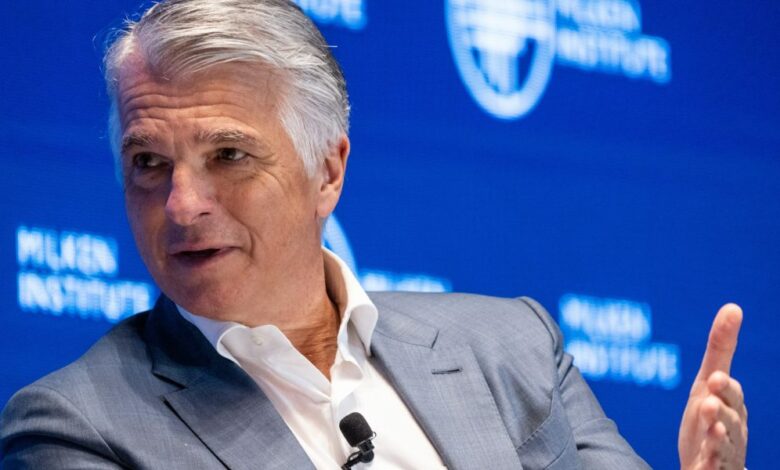UBS veteran Sergio Ermotti is Europe’s best-paid bank CEO


It’s been just over a year since UBS stepped up to rescue Credit Suisse from a debacle that could’ve tanked the entire global banking industry.
Just as the $3 billion deal to buy Credit Suisse was being finalized, UBS had another surprise up its sleeve—the return of its former CEO Sergio Ermotti. He had turned UBS around in the past, so he was the natural choice to lead the tricky takeover of its distressed banking rival.
In the past year, Ermotti made 14.4 million Swiss francs ($15.9 million), making him the best paid European bank boss as he navigated UBS through the Credit Suisse acquisition.
His predecessor, Ralph Hamers, made about $14 million in 2022 when he served as CEO, according to UBS’s annual report released Thursday.
Ermotti’s healthy pay package is set against a sharper increase in overall executive board pay, up 30% from a year earlier to 140.3 million Swiss francs ($154.6 million). But importantly, it’s contrasted with a 14% decline in bonuses for employees.
CEO pay and the growing gap between how employees are paid is a contentious subject, especially within banking. In Ermotti’s case, he’s steering the bank through a massive restructuring and challenging economic climate. And the Swiss bank, unlike others regulated by the ECB, isn’t subject to a cap on banker bonuses.
This year, the Swiss banking giant’s exec pay was much higher than that of other European counterparts such as HSBC’s Noel Quinn and Santander’s Ana Botin, who still made double-digit millions of dollars in executive pay. Ermotti’s pay is only about half of some of his Wall Street peers such as Goldman Sachs’s David Solomon and JPMorgan’s Jamie Dimon.
“The board recognizes Mr. Ermotti’s excellent performance in a defining year in UBS’s history and strong progress in delivering on integration priorities,” UBS said in its report.
Since Ermotti took over at UBS, the bank’s shares have surged 60%.
It’s been an eventful and tricky year for the bank. A government-brokered deal to buy the 166-year-old Credit Suisse came after a slew of small American lenders—including Silicon Valley Bank—collapsed last March. The takeover involved a large cull of up to 30% of staffers as part of the Credit Suisse merger, and UBS said last month that it was looking to trim costs further by $3 billion.
The acquisition has had a financial toll as well—UBS reported a net loss of $279 million in the last three months of 2023, marking its second consecutive quarterly loss. In its Thursday report, UBS warned that this year will continue to be challenging financially as the integration process continues.
Swiss authorities have scrutinized UBS over its size following the Credit Suisse rescue, as its nearly twice Switzerland’s GDP. But the company’s top leadership has defended the deal saying it helped it grow and gain more market share rather than jeopardize competition.
It has only been a year since Ermotti returned to the bank he led between 2011 and 2020. But this time around, it’s a Herculean task unlike any other.
UBS has already hinted that the boomerang CEO will stay on “at least until the completion of the integration process, if not longer.”
Source link




